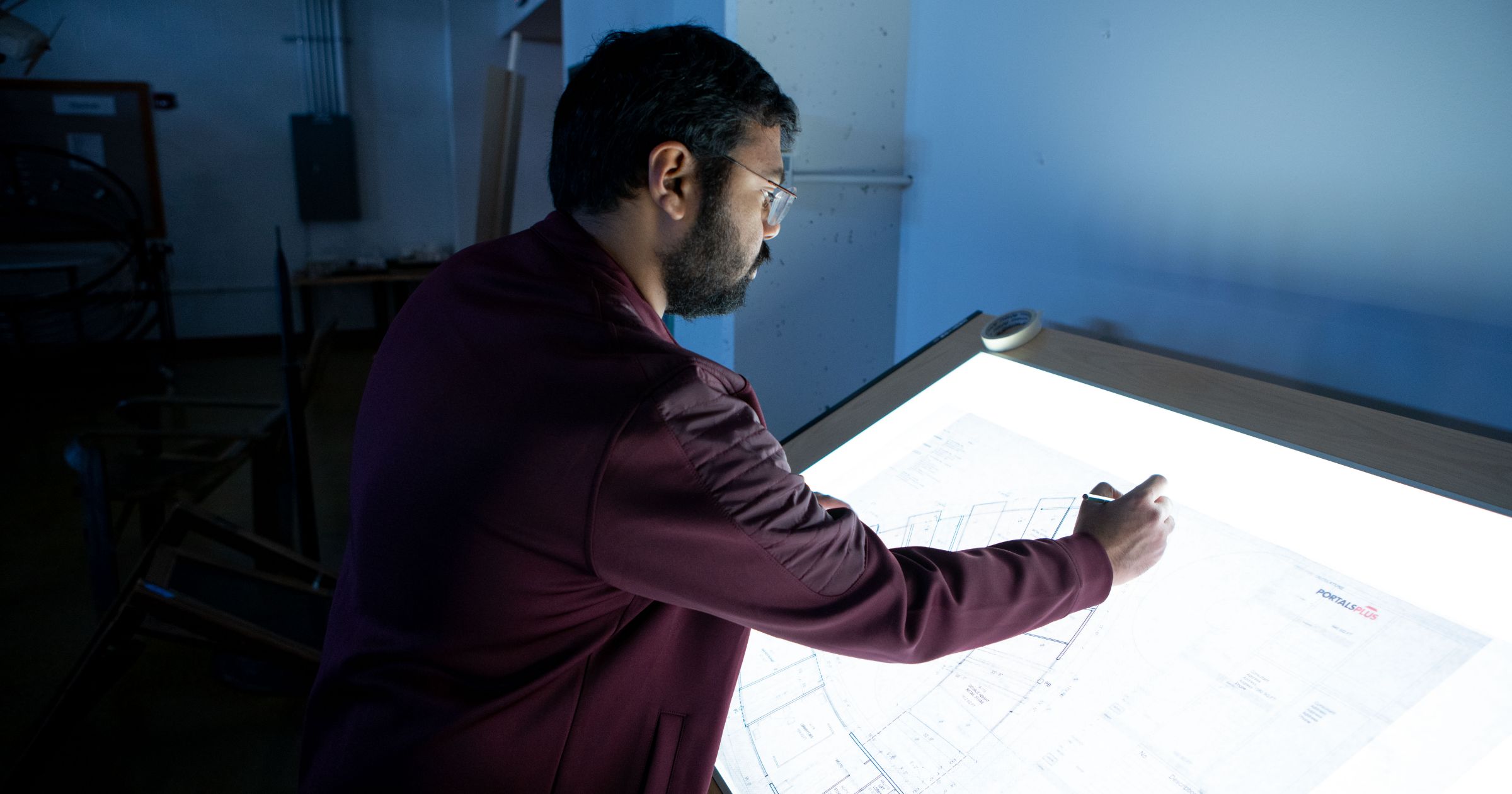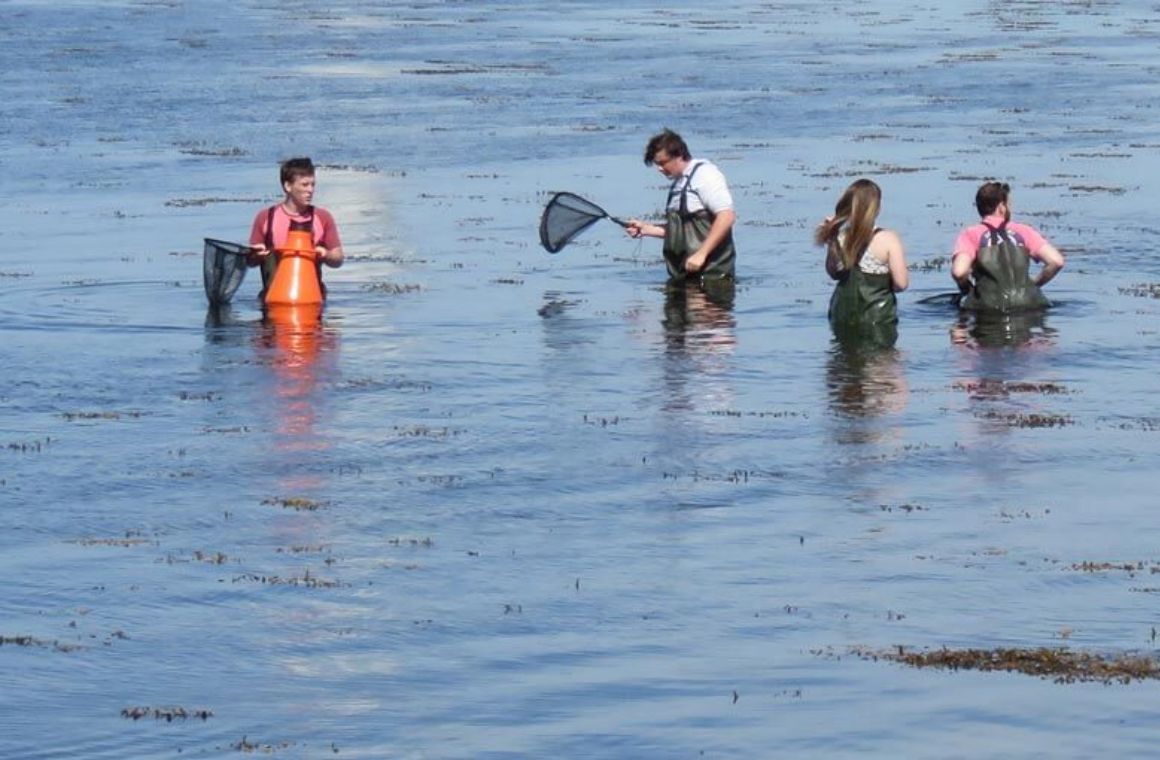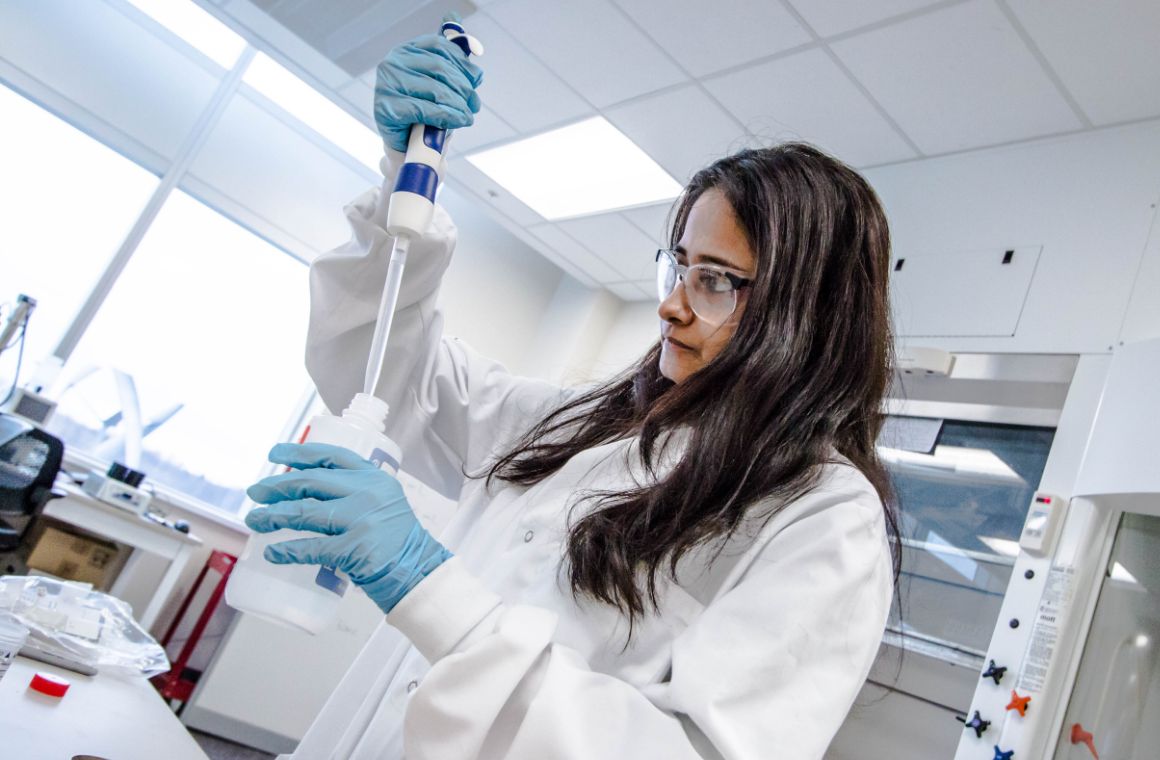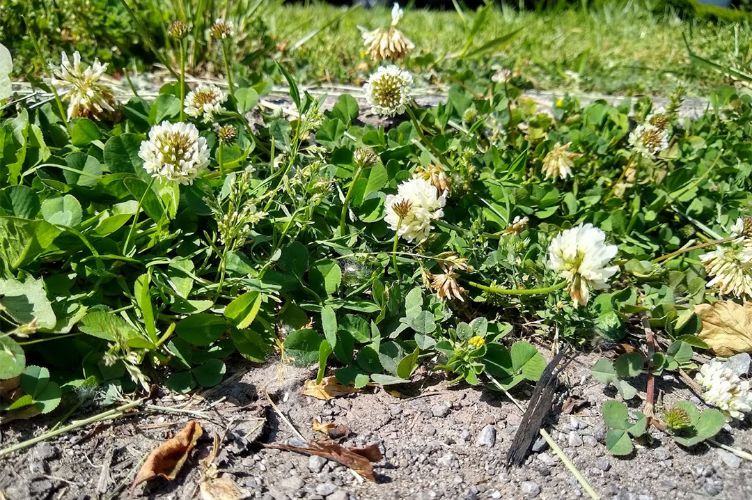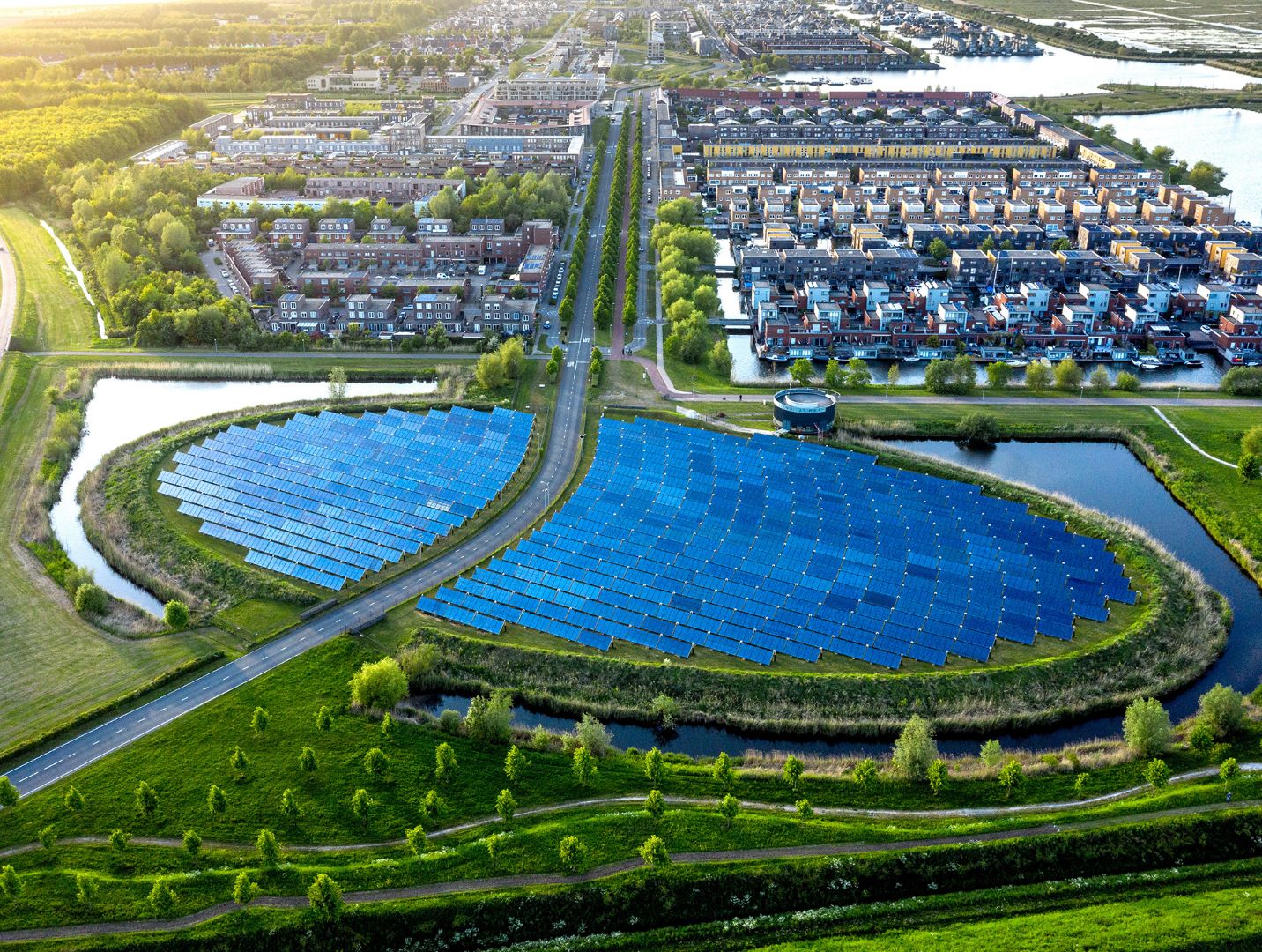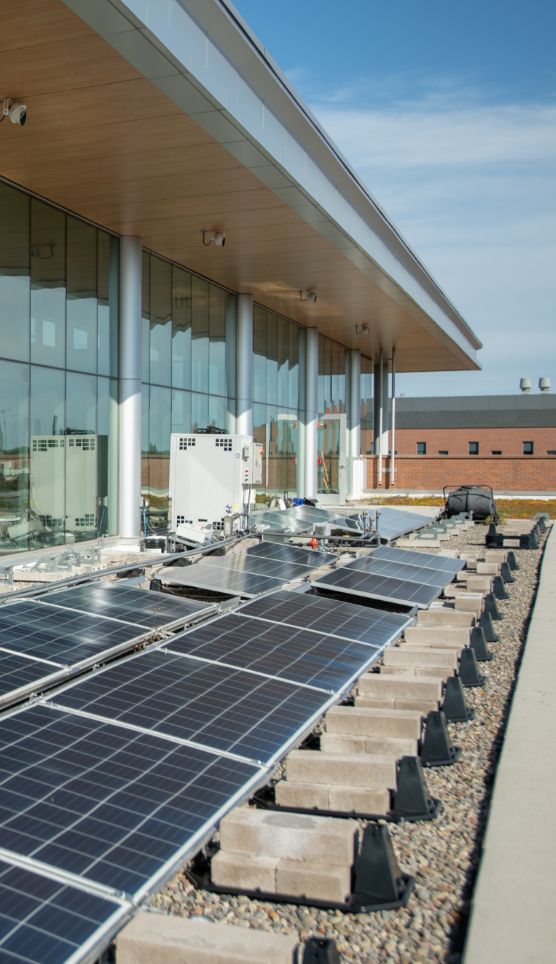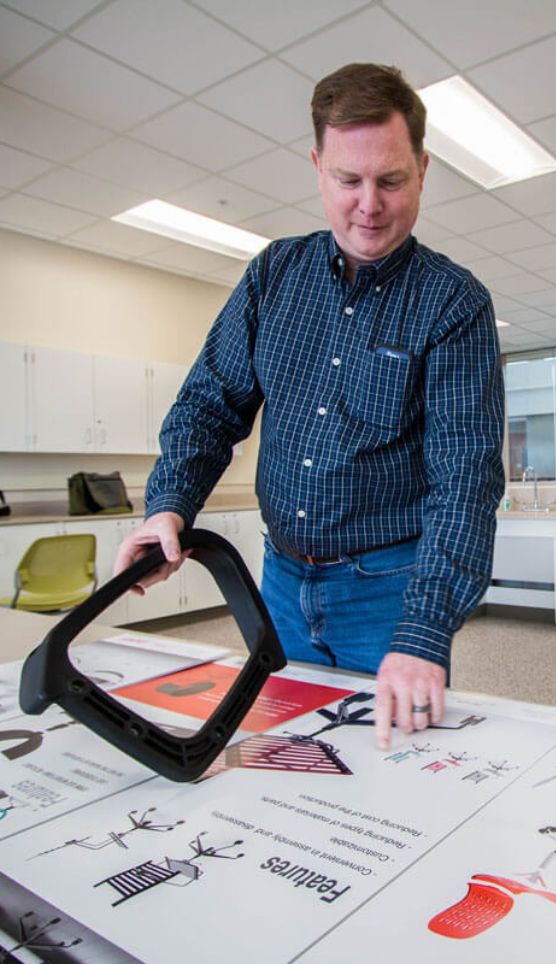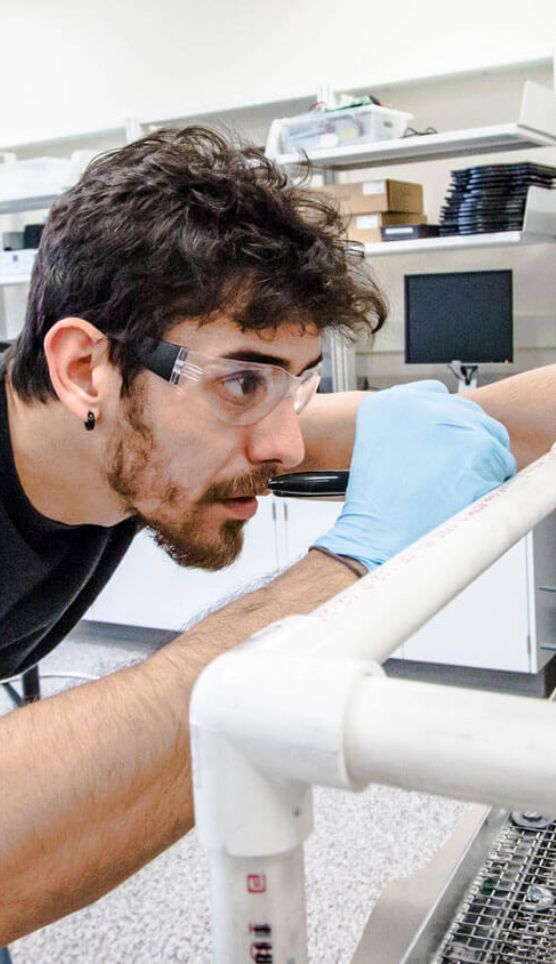Environmental Studies and Sustainability - Graduate Degrees
Be the Change You Want to See and Take Your Career to the Next Level
It’s one thing to be a champion of the environment. It’s another to pioneer the solutions that lead to real environmental preservation.
Drive sustainability and lead productive climate action with graduate degrees that empower your career and help you make real impacts on the world.
#44
Among the Top 50 Green Colleges
Princeton Review, 2023
2030
Target year for RIT to become a carbon neutral campus
6
LEED Platinum and LEED Gold buildings
RIT requires all new buildings to be certified to a minimum of LEED Silver
An NAAB-accredited architecture master’s degree that provides a well-balanced education that integrates design, technology, and research with sustainability to prepare you to enter the modern field of architecture.
A master’s in environmental science that balances environmental conservation, human well-being, and economic development to tackle the biggest problems plaguing our environment.
Learn more about the master of science in environmental science
Environmental, Health and Safety Management MS
In our master’s in environmental, health and safety management, you'll acquire a foundation in the managerial aspects of developing and implementing environmental health and safety management systems to help companies meet sustainability and safety standards.
Learn more about the master of science in environmental, health and safety management
The master’s in packaging science enables you to create visually stunning, environmentally friendly packaging that’s functional and durable enough to withstand the stresses of distribution and transportation while also being aesthetically pleasing and sustainable for the environment.
A sustainability degree that teaches you to apply sustainability science principles to any field to help solve the world’s grand challenges—including pollution, food scarcity, public health crises, and more.
Learn more about the master of science in sustainable systems
Two Professors Secure NOAA Marine Debris Program Awards
Christy Tyler, a professor in the Thomas H. Gosnell School of Life Sciences, and Matthew Hoffman, an associate professor in the School of Mathematics and Statistics, received two NOAA Marine Debris Program awards to investigate plastic waste entering the Great Lakes and to develop prevention and removal measures.
RIT Scientists Part of Massive Study on Clover Show How Urbanization Drives Adaptive Evolution
RIT scientists contributed to the Global Urban Evolution Project (GLUE), which tasked scientists from 160 cities across six continents to collect more than 110,000 samples of white clover plants in urban, suburban, and rural areas to study urbanization’s effects on the plants. It is the largest environmental evolution study ever and its results were published in the journal Science.
RIT Researchers Participate in $15 million NSF Grant Aimed at Reducing Food Waste
With the United States moving toward an ambitious goal of halving food waste by 2030, a new $15 million grant from the National Science Foundation (NSF) will be used to establish the first national academic research network on wasted food in the United States. Callie Babbitt, a professor of sustainability in RITs Golisano Institute for Sustainability, will serve as a co-principal investigator for the project.
Facilities
Unprecedented Access to World Class Studios and Labs
-
Golisano Institute for Sustainability
A global leader in sustainability education and research, the institute partners with business and government sponsors to solve complex, systemic problems and aims to make industry more sustainable through innovative approaches and technologies to minimize the use of materials and energy while maximizing outcomes.
-
A laboratory model for sustainable production and consumption where waste is designed out, materials are kept in use as long as possible, and natural systems are regenerated.
-
Developing and testing environmental design solutions aimed at reducing the environmental impact of high-tech products through solutions that minimize resource use, energy demand, emission generation, and waste creation across a product’s life cycle while maximizing innovation, entrepreneurial potential, and economic opportunities.

